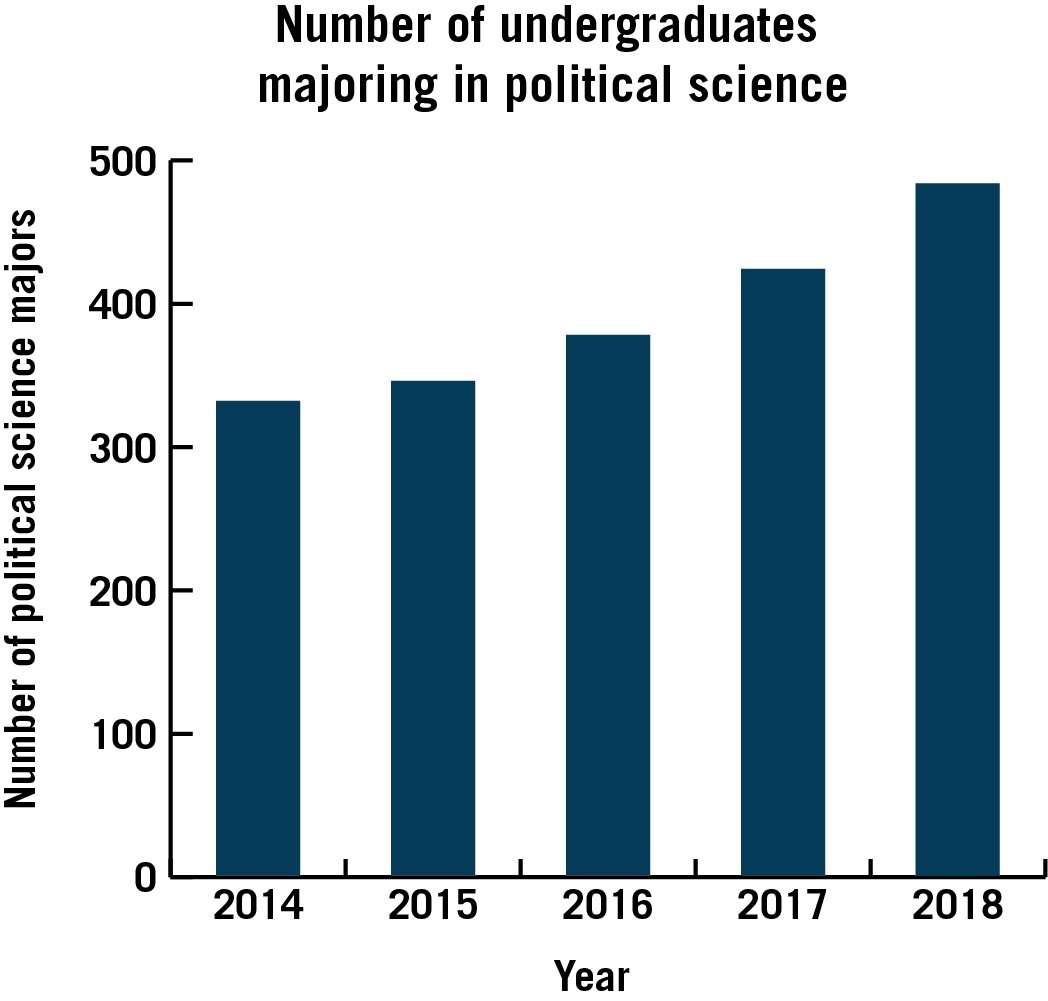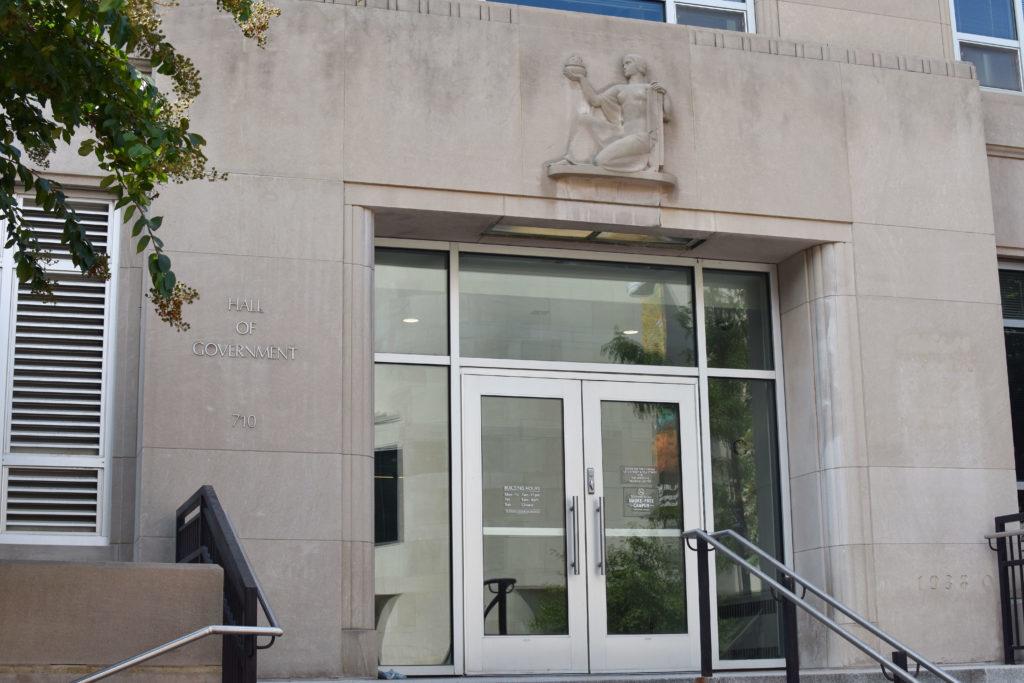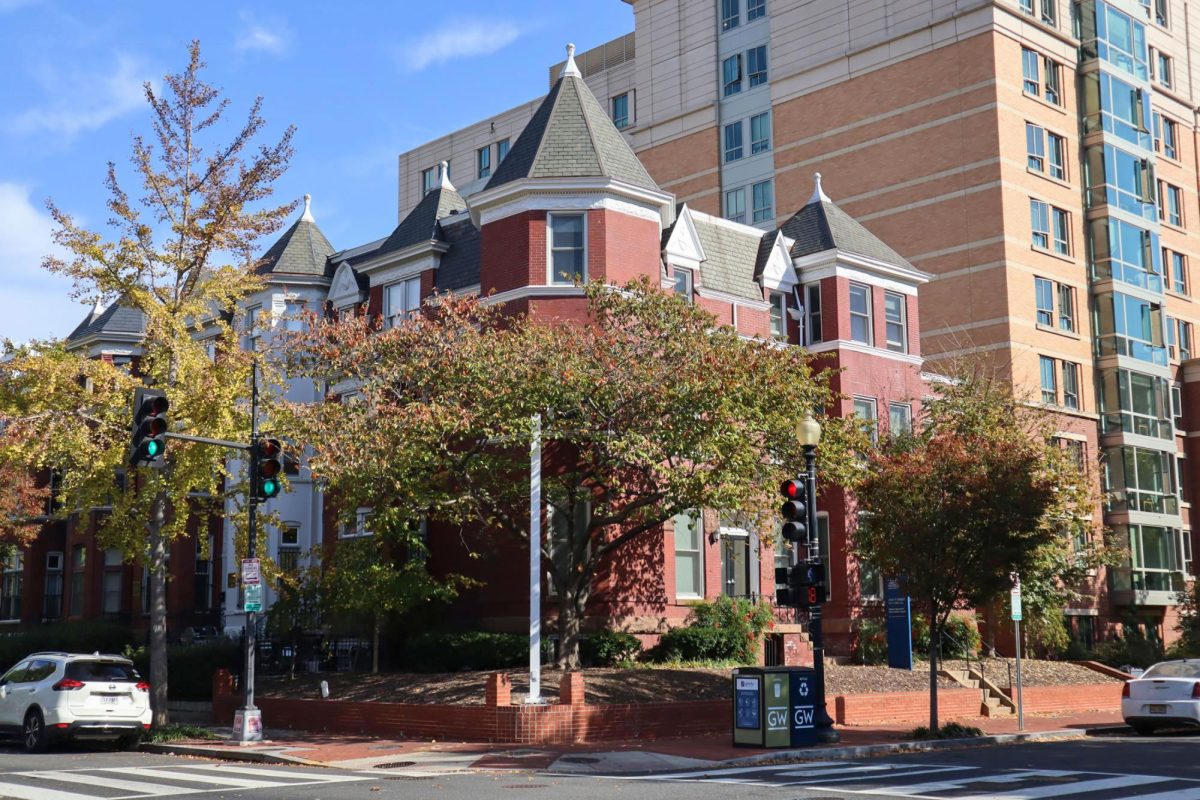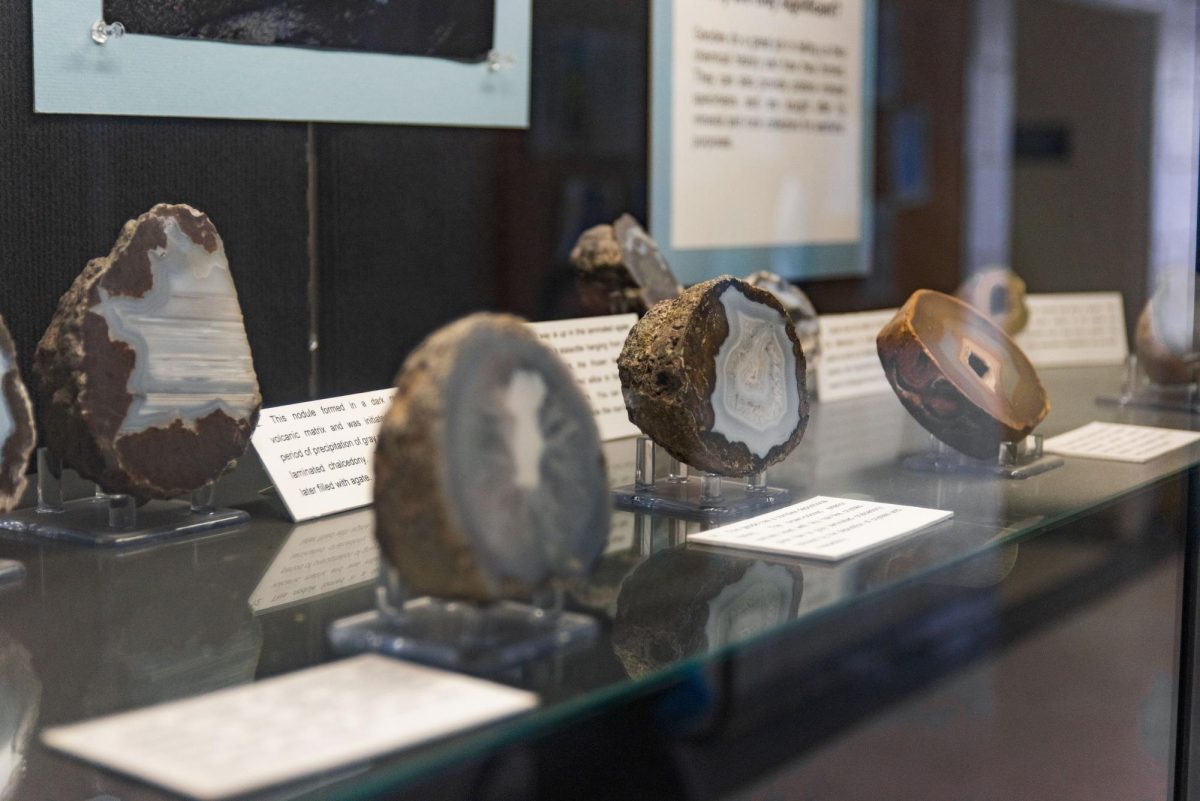The number of undergraduates majoring in political science has reached its highest point in at least 10 years.
Political science majors have steadily increased over the past five years, rising more than 45 percent since 2014, according to institutional data. Higher education experts said the rising number of political science majors could boost the department’s reputation relative to other schools’ political science departments and push officials to increase the amount of financial support and number of faculty positions in the department.
Bruce Dickson, the chair of the political science department, said the University’s location in the nation’s capital and the expertise of the department’s faculty incentivizes undergraduates to study the subject.
He said officials promote GW’s location to prospective students as one of the University’s “comparative advantages,” attempting to lure potential students. Dickson added that GW’s political science faculty also helps draw students to the major by winning awards for teaching and conducting research.
“GW is a great place to study politics, for both students and faculty,” he said in an email.
Political science has consistently ranked as the most popular major among undergraduates at GW for at least the past 10 years, according to institutional data. Last year, about 480 undergraduates majored in political science, making it the third-most-popular undergraduate major after business and international affairs.

Alyssa Ilaria | Graphics Editor
Source: Institutional data
Dickson said the current political climate has inspired more prospective and current students to get involved with politics, which might be a contributing factor to the higher number of majors.
He added that the department’s biggest challenge in light of increasing interest in political science is offering enough classes to meet demand from students, adding that the department recently capped political science classes at 39 students “to be more in line with other departments.” Dickson said the department has not hired any new professors directly as a result of the increase, but professors are continuously replaced when a faculty member leaves GW or retires.
Political science experts said the rise in the number of political science majors at GW is part of a nationwide trend over the past few years as universities receive a greater proportion of prospective students interested in politics and activism.
Daniel Aldrich, a professor of political science at Northeastern University, said more students are becoming political science majors because political issues that directly impact college students are moving toward the forefront of the political arena.
“Whether debating free college or the limits of Pell Grants or trade wars, which impact prices of their electronics, politics’ impact is far more obvious in 2019,” he said in an email.
He added that these politically charged students increasingly eschew potential legal careers in favor of new positions that place them closer to partisan policy debates.
“In the past, many of the political science majors were individuals interested in pre-law careers, but now with the rise of political parties, non-governmental organizations and other forms of civic engagement, I believe we’re seeing a new phenomenon,” Aldrich said.
Brian Taylor, the chair of the political science department at Syracuse University, one of GW’s peer schools, said the number of students majoring in political science at his institution has increased by about 15 percent in the past two years. He said the election of President Donald Trump in 2016 – which ushered in an increasingly partisan environment in the country – could be a driving factor in rising interest in the major.
“I think most people assume it’s the Trump effect, but I haven’t seen any data on that,” Taylor said. “I assume it’s one of the main things driving interest in the major.”
He said an increase in enrollment may cause officials to hire more faculty over an extended period of time. Taylor did not specify if the increase could result in other benefits for the department.
“Deans who are paying attention to where enrollment is taking place notice when the number of credit hours assigned to a department rise, and over time, that may lead to more faculty positions,” he said.
Taylor added that it is difficult to determine whether the trend of the previous few years will continue and if the major will become more popular in the future. He said there is a limit on the number of majors because students remain passionate about other topics even if they have become more interested in politics.
“The trend in the last few years has been up, but there has to be a natural ceiling at which it couldn’t go that much higher,” he said. “I don’t know when we’re going to hit that ceiling or if we’ve hit it yet.”
Cristina Cestone contributed reporting.








